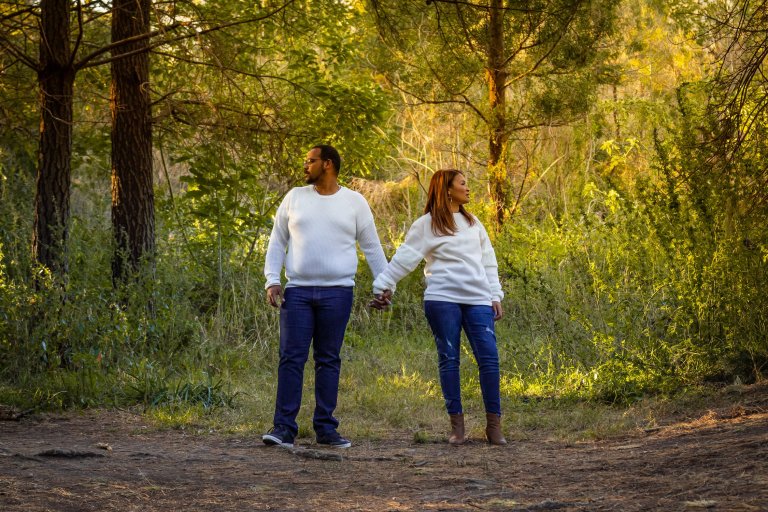People have the ability to adapt to a variety of situations: when our lives change, we change as well. And there’s a reason for this: such modifications help you survive, no matter what circumstances you’re in. However, certain life situations might result in PTSD, a serious mental disease. What exactly is it? What impact does this have on a person’s life? Is it feasible to have PTSD and a romantic relationship at the same time? Let’s think about these and other PTSD dating challenges!

PTSD (Post-traumatic stress disorder) is a comprehensive set of symptoms of psychological distress caused by a single or multiple external traumatic events on the human psyche: sexual or physical violence, continuous nervous tension associated with distress, dishonor, compassion for the suffering of others, military actions, natural disasters, and so on.
Increased anxiety is a symptom of PTSD, which is accompanied by periods of extraordinarily vivid memories of a traumatic incident. These episodes frequently occur when persons are confronted with triggers (irritants) related with PTSD recollections (crying of a child, the smell of petrol, screeching brakes, the hum of a plane, etc.).
The following are some of the causes of post-traumatic stress disorder:

PTSD is a psychiatric illness that need the help of a professional, although not everyone is aware that they are suffering from it. A person’s PTSD can be indicated by a variety of factors:
It manifests itself physiologically (backache, stomach cramps, cephalgia), mentally (persistent worry and anxiety, paranoid delusion, for example, unfounded fear of harassment), and emotionally (permanent concern and anxiety, paranoid delusion, for example, baseless fear of harassment) (constant feeling of fear, pang of guilt, self-distrust, etc.).
It is possible for a traumatized individual to lose all or part of their capacity to express emotions. If your spouse suffers from PTSD, it may be difficult for them to form deep and pleasant relationships with others. Furthermore, persons with post-traumatic stress disorder are seldom able to experience joy, love, creativity, or fun. Even when women search for guys online, they experience this.
It’s the most obvious indicator that your lover is suffering from PTSD. Maybe your loved one has previously told you that odd, unpleasant memories from a terrible incident keep popping up in their head. Such memories can arise while sleeping as well as during typical waking hours. They appear in waking life when the surroundings in some way reminds your spouse of what happened during the traumatic event: ascent, sight, or audio that sounds like it came from that time.
Your spouse avoids thinking about, feeling about, or remembering painful situations. They don’t travel to the areas where it happened, they don’t meet individuals who are somehow linked to a bad event, and so on.
People who suffer from post-traumatic stress disorder may feel guilty all of the time. They think, for example, that they can prevent unpleasant events from occurring or affect their outcome in some way. They feel faulty, ruined, and broken at the same time.
This symptom is especially noticeable while dating a PTSD veteran. You could notice that your spouse is continually on the lookout for danger and reacts quickly to ongoing events, even if they don’t constitute a threat. Your sweetheart makes quick motions with the slightest provocation (falls on the ground at the sound of a low-flying helicopter, switches head round when someone approaches them from behind, and so on).
A man’s unique understanding, compassion, and care are required while dating someone with complicated PTSD. There are 7 helpful guidelines on dating a lady with PTSD to help you cope with this challenging challenge.
Reliving a traumatic experience might bring up unwanted, uncomfortable recollections. During panic attacks, your girlfriend may feel as if she is back at the site of an accident or is standing on the sidelines observing what is going on. If your loved one is having a panic attack, don’t interrogate her too much; instead, simply be there for her and make her feel comfortable. Try to help your loved one in any way you can, but don’t be too intrusive and don’t take care of them too much. This is one of the greatest dating advice for someone who has suffered trauma and has PTSD.
Even at home, it can be difficult for a person to feel safe after a traumatic incident. Although you cannot guarantee that nothing horrible will happen to your girlfriend again, you can demonstrate that you are always willing to assist and defend her. Here are some suggestions for making a lady feel comfortable around you:
Your partner might constantly dwell on her own inadequacy or revert to a stressful circumstance and blame herself for the outcome. As a result, urge your cherished woman to think positively of herself and to avoid painting her destiny in gloomy hues. Talk softly to the girl and express your love and care for her without condemning her.
Sleep disturbances are common among those suffering from PTSD symptoms. Of course, you have no influence over the ideas that occur in your partner’s mind, but you can help them sleep by creating a relaxing environment:
Irritability can be exacerbated by PTSD on various occasions. You may, however, assist your loved one in avoiding stressful and uncomfortable circumstances. If you sense your girlfriend becoming worried or uneasy, pull her aside and offer to go for a stroll somewhere else, or if you’re at home, take her to another room and encourage her to take a few deep breaths.
Excessive anxiety and a fast reactivity to unexpected stimuli are common symptoms of PTSD. As a result, avoid doing anything that can frighten your partner. Notify your sweetheart when you return home, or vice versa, alert her that you are at home when she returns. Furthermore, notify your loved one if you are about to do something that will make a loud noise, such as turning on a blender or driving a nail into the wall.
During the challenging recuperation phase, you should be understanding of your girlfriend’s requirements. Do not compel your partner to share all of her feelings and experiences with you. Simply be there for her and assist and support her whenever feasible. Such care may be communicated through heartfelt conversations in a comfortable setting, making her favorite meal, or just wandering around her favorite spots.
It’s important to realize that complete healing from PTSD is achievable. Psychotherapists say there are a variety of effective therapies, including support groups, individual psychotherapy, medication, and hypnosis. So, give your loved one your support and urge them to take the first step toward overcoming PTSD!